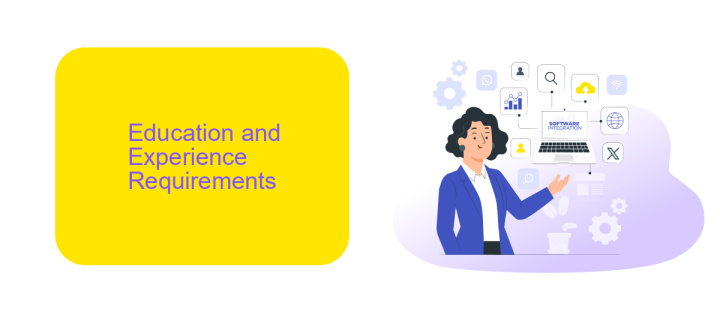Data Integration Developer Salary
The role of a Data Integration Developer has become increasingly vital in today's data-driven business environment. These professionals are responsible for combining data from various sources into a cohesive, accessible format. As the demand for seamless data integration grows, so does the interest in understanding the salary expectations for this crucial position. This article delves into the factors influencing a Data Integration Developer's salary.
Salary Ranges and Factors
The salary of a Data Integration Developer can vary significantly based on several key factors. Geographic location, level of experience, and the complexity of the integration tasks are primary determinants of compensation. For instance, developers in major tech hubs like San Francisco or New York typically earn higher salaries compared to those in smaller cities.
- Entry-Level: ,000 - ,000 annually
- Mid-Level: ,000 - 0,000 annually
- Senior-Level: 0,000 - 0,000+ annually
Besides location and experience, the specific tools and platforms a developer is proficient in can also impact their salary. Proficiency in popular integration platforms like ApiX-Drive, which simplifies the process of connecting various applications, can make a developer more valuable to employers. Additionally, certifications and specialized skills in data integration technologies can further enhance earning potential.
Education and Experience Requirements

To become a Data Integration Developer, a bachelor's degree in Computer Science, Information Technology, or a related field is typically required. Coursework in database management, software development, and systems integration provides a solid foundation for this role. Advanced degrees or certifications in data integration tools and technologies can be beneficial, offering deeper insights and specialized skills that can set candidates apart in the job market.
Experience is equally important for Data Integration Developers. Employers often look for candidates with hands-on experience in data integration projects, preferably using tools like ApiX-Drive, which simplifies the process of connecting various applications and automating workflows. Familiarity with ETL (Extract, Transform, Load) processes, API management, and cloud-based integration platforms is highly desirable. Additionally, strong problem-solving skills and the ability to work collaboratively in a team environment are crucial for success in this role.
Job Responsibilities and Skills

A Data Integration Developer is responsible for ensuring seamless data flow between various systems and applications. This role is crucial for organizations that rely on multiple data sources to drive business decisions. Effective data integration helps maintain data consistency, accuracy, and accessibility across the enterprise.
- Designing and implementing data integration solutions using tools like ApiX-Drive to automate data transfer between systems.
- Developing and maintaining ETL (Extract, Transform, Load) processes to ensure data is accurately and efficiently moved from source to destination.
- Collaborating with data architects and business analysts to understand data requirements and develop integration strategies.
- Monitoring data integration processes to identify and resolve issues promptly, ensuring minimal disruption to business operations.
- Documenting integration processes and maintaining technical documentation for future reference and compliance purposes.
In addition to technical skills, a Data Integration Developer must possess strong problem-solving abilities and attention to detail. Familiarity with data integration tools like ApiX-Drive can significantly enhance efficiency and reliability. Effective communication skills are also essential, as this role often involves coordinating with various stakeholders to ensure data integrity and alignment with business objectives.
Career Outlook and Growth Potential

The career outlook for Data Integration Developers is highly promising, driven by the increasing need for seamless data flow across various platforms and systems. As businesses continue to adopt more complex technological solutions, the demand for skilled professionals who can integrate these systems effectively is on the rise. This growth is further fueled by the expansion of big data, cloud computing, and IoT technologies.
One of the key factors contributing to the growth potential in this field is the advent of integration platforms like ApiX-Drive. These services simplify the process of connecting disparate systems, allowing developers to focus on more complex integration tasks. By automating routine data transfer processes, tools like ApiX-Drive enable businesses to operate more efficiently and make data-driven decisions faster.
- Increasing demand for data integration solutions
- Expansion of cloud computing and IoT technologies
- Advancements in integration platforms like ApiX-Drive
- Growing importance of data-driven decision making
Overall, the future for Data Integration Developers looks bright with numerous opportunities for career advancement and specialization. As technology continues to evolve, professionals in this field will play a critical role in ensuring that businesses can leverage their data assets effectively. Continuous learning and staying updated with the latest integration tools and technologies will be key to thriving in this dynamic environment.


Additional Benefits and Perks
In addition to competitive salaries, Data Integration Developers often enjoy a range of additional benefits and perks. Many companies offer comprehensive health and dental insurance, retirement plans, and generous paid time off. Furthermore, professional development opportunities such as workshops, certifications, and conferences are commonly provided to help developers stay current with the latest technologies and methodologies in the field.
Moreover, Data Integration Developers frequently have access to advanced tools and platforms like ApiX-Drive, which streamline the process of integrating various applications and services. This not only enhances productivity but also reduces the complexity of managing multiple data sources. Flexible working hours and remote work options are also popular perks, allowing developers to maintain a healthy work-life balance. Additionally, many organizations offer performance bonuses, stock options, and other financial incentives to reward exceptional work and commitment.
FAQ
What is the average salary of a Data Integration Developer?
What skills are essential for a Data Integration Developer to earn a higher salary?
How can a Data Integration Developer increase their salary potential?
What industries pay the highest salaries for Data Integration Developers?
Are there any tools or services that can help with automating data integration tasks?
Apix-Drive will help optimize business processes, save you from a lot of routine tasks and unnecessary costs for automation, attracting additional specialists. Try setting up a free test connection with ApiX-Drive and see for yourself. Now you have to think about where to invest the freed time and money!

